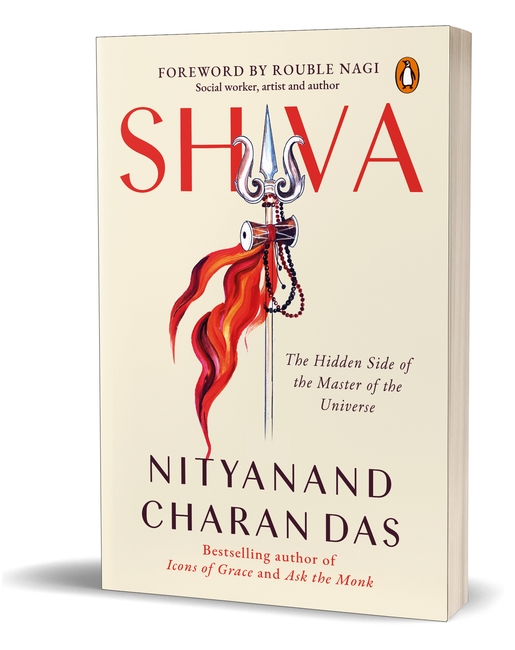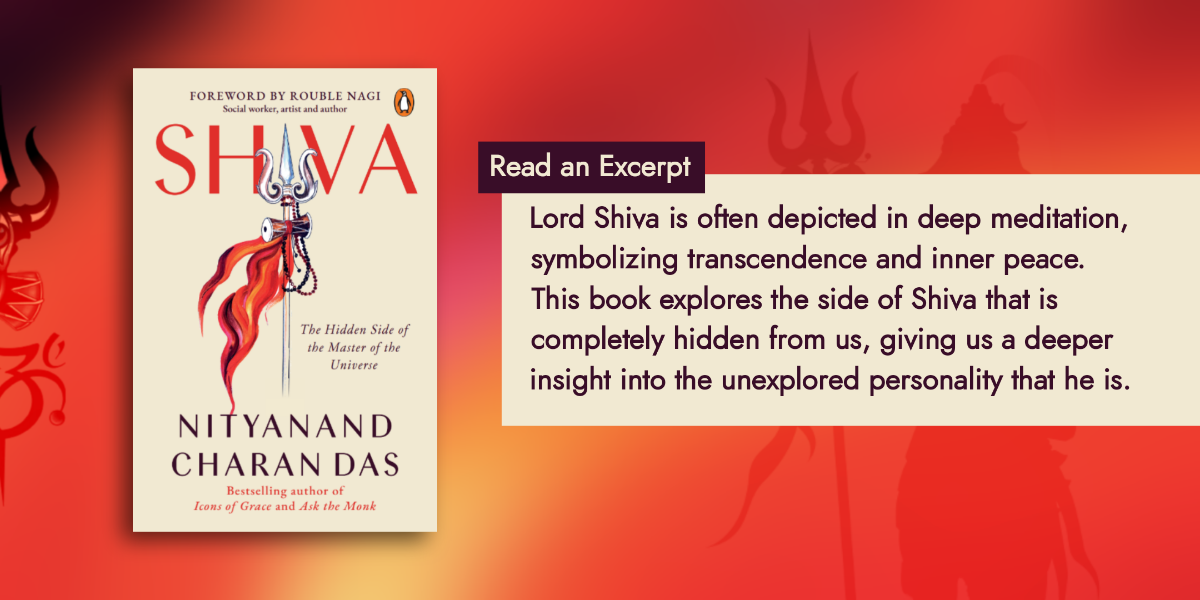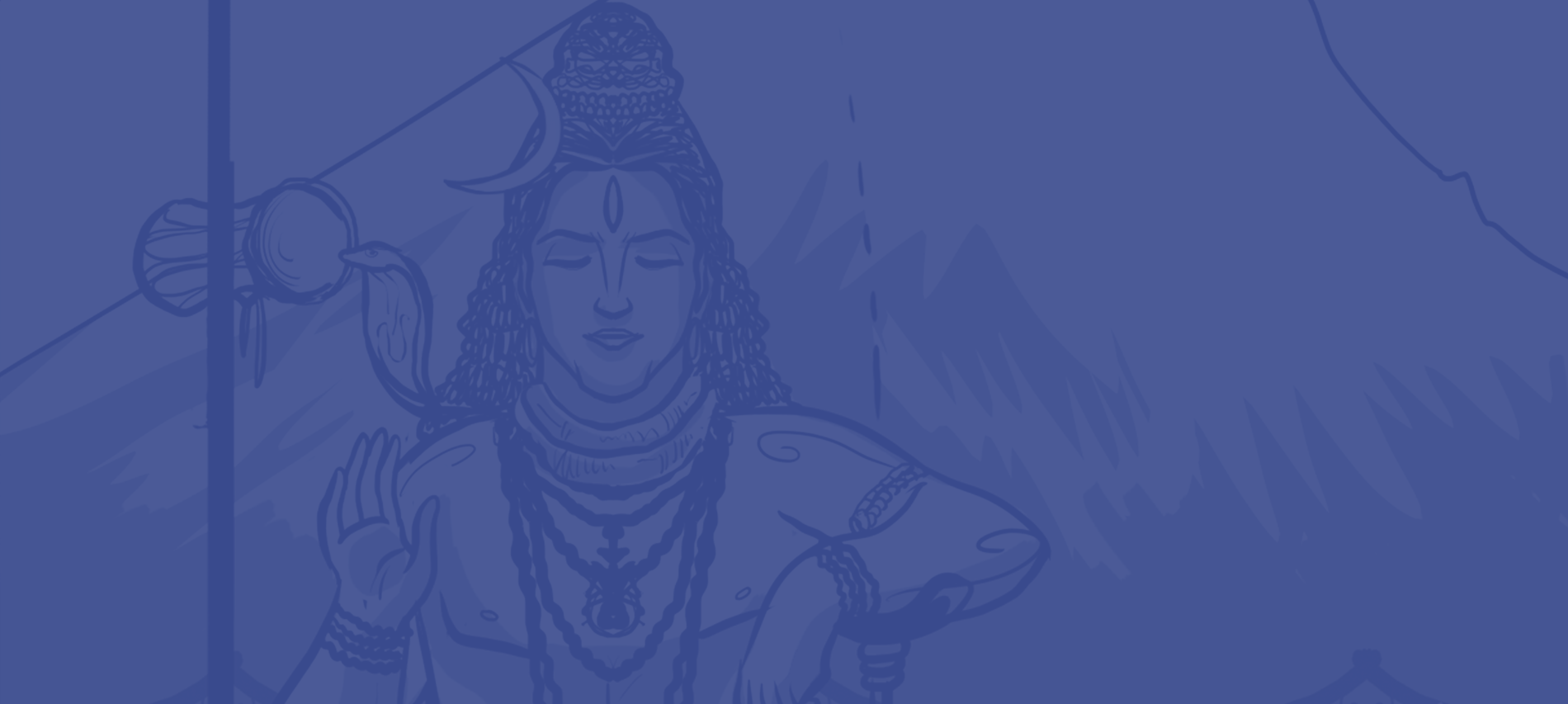Discover the fascinating story of how Lord Shiva came to be—a tale filled with mystery and contradictions. Shiva is known for his unique role as both a destroyer and a protector. His journey through the Vedic scriptures is full of unexpected twists. Read this excerpt from Shiva by Nityanand Charas Das to explore the lesser-known details of his origins and see what makes him truly remarkable.

***
The divine Sage Vyasa wrote Vedic scriptures, such as the Vedas, Puranas, Upanishads, Mahabharata and the Vedanta Sutra, and if a person goes through all of them, he might get confused about the origin of Lord Shiva. The Shiva Purana describes him as the supreme and the Vishnu Purana describes Lord Krishna/Lord Vishnu as the supreme. Why such contradictions? Wouldn’t it have been easier if he just made things crystal clear? After all, there cannot be many Supremes.
Let us understand why the puranic versions differ in some aspects.
Firstly, we have to understand that the Vedic scriptures are reciprocal in terms of the level of consciousness of the seeker.
Lord Krishna says in the Bhagavad Gita (4.11):
ye yetha maam prapadyante,
tams tathaiva bhajame aham
‘As all surrender to me, I will reward accordingly.’
Here, what does the reward refer to? It can be many things.
In the Bhagavad Gita (7.21–23), Lord Krishna describes the system of demigod worship:
yo yo yam yam tanum bhaktah
shraddhayarchitum icchati
tasya tasyacalam shraddham
tam eva vidadhamy aham
‘I am in everyone’s heart as the supersoul (paramatma). As soon as one desires to worship heavenly deities, I ensure their faith becomes steady, enabling them to devote themselves to that particular deity.’
How does He ensure this? There are many ways:
1.To begin with, as a supersoul in everyone’s heart, He encourages whatever inclination a person has towards a particular devata (celestial god).
2. Secondly, He also arranges for them to associate with others who are worshipping that particular deity.
3. Thirdly, He also provides scriptures that glorify that particular devata.
Matsya Purana, the oldest Purana, states that the eighteen Puranas are classified into three modes:
1. The mode of goodness,
2. The mode of passion and
3. The mode of ignorance.
The ones in the mode of goodness recommend the worship of Lord Vishnu, those in passion recommend the worship of Lord Brahma and those in ignorance recommend the worship of Lord Shiva.
Why is such a distinction made? All the people in this world are under the influence of three modes, which decide the levels of faith and intelligence they are born with. Each mode is characterized by a particular set of qualities and faults. Depending on which mode is binding an individual from his past life, he is attracted to a particular type of worship.
Shri Vyasa, an expert teacher, understood this and wanted to elevate each individual to the highest understanding. He concluded that just as we do not have the
same book for all standards in an educational institution, it was not practical to have only one scripture for all. So, he compiled different scriptures and categorized them. This way, each person could start some sort of worship, even if it was not the highest form of worship. And if they remained sincere in their practice, they would gradually evolve and achieve the highest understanding as well.
Thus, if someone, based on his past faith, is attracted to the worship of a particular personality, a scripture will describe that personality as supreme to increase the person’s faith in him. The hope is that the person will get connected to the Vedic path in some way and advance to spiritual realization, which is the ultimate goal of human life.
As far as the origin of Lord Shiva is concerned, depending on which Puranas one refers to, there are different descriptions. This is because, at least from the perspective of the seeker or worshipper, reality is state-specific. It’s not that the Shiva Purana will describe Lord Vishnu as supreme, although Lord Vishnu is described as a very important person. The Shiva Purana will focus on describing Lord Shiva as the supreme. Why? Because that is the way the faith of the Lord Shiva worshippers will be enhanced. This also involves describing the origin in a particular way—the Shiva Purana will not explicitly talk about how Lord Shiva is subordinate to Lord Vishnu because that is how the faith of the worshipper is preserved.
Since all the information about spiritual subjects must come from the scriptures, the opinion of Sage Vyasa (who compiled all the Vedic literature) is to be considered the final word. He compiled the four Vedas, eighteen Puranas, 108 Upanishads and Vedanta Sutra (Vedanta means ‘the conclusion or the end of all knowledge’). He also compiled the longest poem in the world—the Mahabharata. Still not satisfied, he also wrote the Bhagavat Purana, which he describes as the natural commentary on Vedanta Sutra.
Shrimad Bhagavat Purana is the conclusion of the message of all scriptures. Thus, logically, if we want to know how Lord Shiva originates, we should primarily focus on the Bhagavatam.
Also in this regard, the Skanda Purana mentions:
shiva-shastresu tad grahyam bhagavac-chastra-yogi yat paramo vishnur evaikas taj jnanam moksha sadhanam shastranam nirnayas tv esas tad anyan mohanaya hi iti.
‘Accept the verdict of the Shiva-Sastras (like Shiva-Purana etc.) as long as it is in line and accordance with the conclusions of Bhagavat-Sastras (Shrimad Bhagavatam) because there is only one Supreme, Lord Visnu, the knowledge of whom is the only means for liberation. This is the conclusion of all the revealed
scriptures, and anything else other than this conclusion is meant only for the bewilderment of people in general.
***
Get your copy of Shiva by Nityanand Charan Das on Amazon or wherever books are sold.









